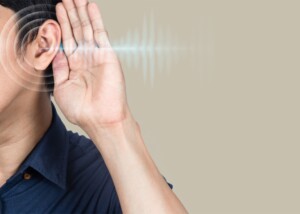
If you’ve been hearing your eyeballs move — does this mean you’ve gone bonkers?
Or is this an actual phenomenon that’s recognized by doctors?
It Has a Name
“Hearing every tiny movement of your eyeball is called autophony,” says Kaushal M. Kulkarni, MD, board certified ophthalmologist and neuro-ophthalmologist in private practice in New York.
The term “autophony” translates to one’s self being the only person who can hear something going on with their body.
When the sound seems to be coming from inside an ear, it has a more specific name: tinnitus.
But hearing the movements of one eyeball is certainly not unheard of in the medical world.
Cause of Hearing an Eyeball Move
This can be a most bothersome symptom that’s difficult to escape from, since we have to move our eyes in day to day life.
“This is most commonly caused by a condition called superior canal dehiscence syndrome,” continues Dr. Kulkarni.
“This is a rare disorder of the inner ear caused by a thinning or complete absence of a part of the overlying temporal bone.
“It is usually something you are born with, or could occur after trauma.
“In addition to hearing your eyeballs moving, you may hear your own voice as disturbingly loud and distorted, creaking and cracking of your joints, the sound of your footsteps when walking or running, your heartbeat in your ear (pulsatile tinnitus).”
Superior Canal Dehiscence Syndrome
SCD can also cause problems with balance and hearing. Dehiscence refers to an opening in a bone.
In addition to hearing one’s eyeball move, SCD can also make a person hear their eyelids blink.
There actually is nothing wrong with the eyeball itself. It’s just that SCD “amplifies” the sounds created by the tiny movements of the body.
Treatment
The treatment specialist would ideally be a certified vestibular physical therapist, even though the diagnosis would be made by a medical doctor.
If hearing one’s eyeball moving around or lids blinking is unbearable and impossible to habituate to, the patient can discuss surgical plugging of the dehiscence with their doctor.
 Dr. Kulkarni specializes in providing refined medical and surgical eye care, and has a special interest in optic nerve regeneration. He completed subspecialty training in neuro-ophthalmology at the prestigious Bascom Palmer Eye Institute in Miami, FL.
Dr. Kulkarni specializes in providing refined medical and surgical eye care, and has a special interest in optic nerve regeneration. He completed subspecialty training in neuro-ophthalmology at the prestigious Bascom Palmer Eye Institute in Miami, FL.
 Lorra Garrick has been covering medical, fitness and cybersecurity topics for many years, having written thousands of articles for print magazines and websites, including as a ghostwriter. She’s also a former ACE-certified personal trainer.
Lorra Garrick has been covering medical, fitness and cybersecurity topics for many years, having written thousands of articles for print magazines and websites, including as a ghostwriter. She’s also a former ACE-certified personal trainer.
.









































